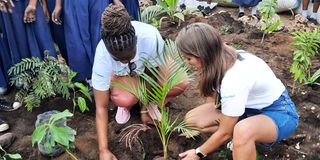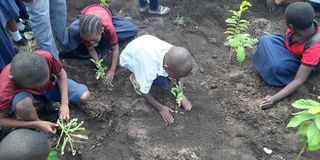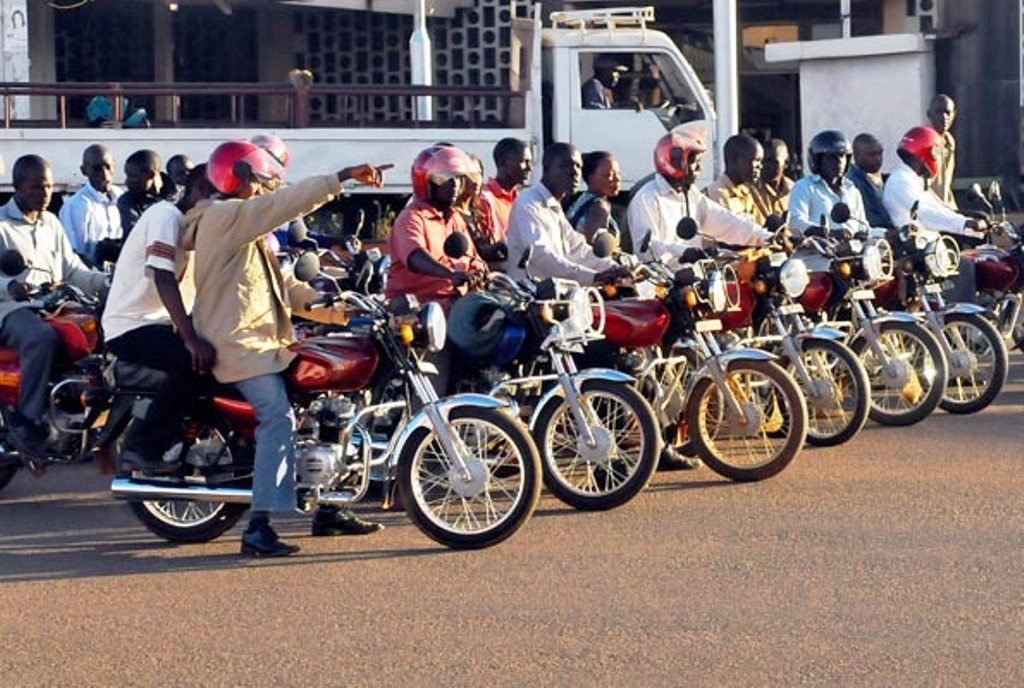Aga Khan Foundation, Hudefo partner for climate resilience and biodiversity activities

Dar es Salaam. In line with the global effort on building a climate resilient and restoring environmental biodiversity, the Aga Khan Foundation of Tanzania (AKF) partnered with the Human Dignity and Environment Care Foundation (Hudefo) to plant a microforest at the city school.
The activity aims at fighting against climate change in Temeke Primary School, where students, teachers, Temeke municipal education leaders, and AKF human resources managers from around the world planted at least 27 species of trees in a 100-metre square area.
AKF Tanzania Project Coordinator Japhet Wangwe said that as part of their initiatives to restore biodiversity, they practically teach students how to plant trees and teach them the importance of forests for environmental resilience and sustainability.
"We have activities like mangrove plantations; as part of our initiative, we also plant the microforests in schools and have already done so in 30 schools in Dar es Salaam and Lindi. We plan to do so in 25 more schools on the mainland and islands before the end of this year," he said, adding that they also practically showed the AKF leaders from around the world how they perform their activities.

Hudefo Chief Executive Director, Sarah Pima, says there has been a positive impact from the previous schools where they planted microforests since they started in 2022.
"We do follow-ups every three months, and the results are positive. We are very optimistic that this project will spread to many other areas around the country," said Sarah, who was the main coordinator of the preparation of all the tree species, the local manure, and the area for plantation.
"All the products we buy from the local farmers and some of the seedlings we prepare in my organisation," she adds.
A standard four student, Flaviana Francis, noted, "I am so happy today that I learned how to plant trees and water them."
Another student from standard five Abubakar Rajab, who is deaf with the help of his teacher, says he is looking forward to ensuring the maintenance of the microforest.
The school assistant head teacher, Mr. Nuri Kiswamba, promised that they would ensure the sustainability of the microforest, noting that "we have plenty of water from wells, and together with our students, we will ensure the sustainability of the project ".
On his part, the District Educational Statistics and Logistics Officer, who was on behalf of the District Director, called for more projects in Temeke, noting that they have 85 schools and that they welcome such activities. "We will cooperate with you because these projects are for the benefit of all, and our children learn a lot from them," he said.





